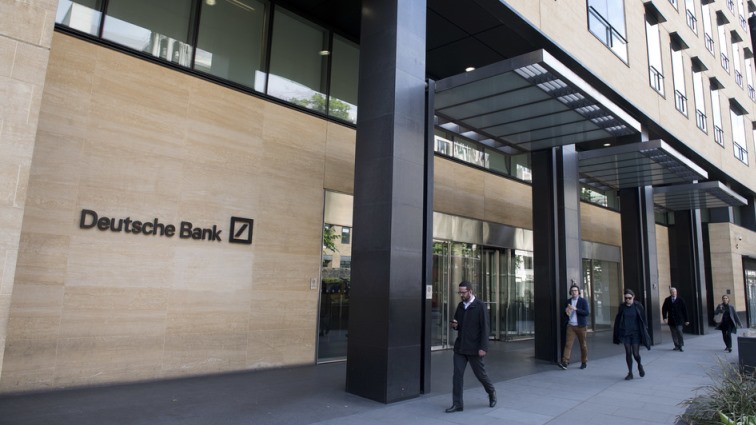Germany’s two biggest lenders, the ailing Deutsche Bank and Commerzbank, said Sunday they would launch formal talks toward a possible merger that could create a “national champion” in financial services.
Chancellor Angel Merkel’s government has been urging the two Frankfurt firms to explore a cross-town merger to avoid either one being swallowed up by a foreign competitor and to create a muscular player that can finance Germany’s export-driven companies.
The lenders, both grappling with painful restructurings after years of falling profits, have long been the subject of merger rumours.
Deutsche Bank said Sunday it was “reviewing strategic options and confirms discussions with Commerzbank”, adding that “there is no certainty that any transaction will occur”.
Commerzbank said both banks had “agreed today to start discussions with an open outcome on a potential merger”.
If they did tie the knot, they would create a European banking behemoth with some 1.8 trillion euros ($2 trillion) in assets, close to France’s largest bank BNP Paribas.
Deutsche Bank’s market capitalisation is 16.1 billion euros while Commerzbank’s is 8.9 billion euros.
Their joint customer base could allow the combined group to become a significant retail banking player in Germany while giving it a springboard internationally, building on Deutsche’s corporate and asset management units.
A week ago Finance Minister Olaf Scholz sent up shares in both banks by confirming that “there are talks about the situation as it is” between the lenders, with the government a “fair companion” to the discussions.
– ‘Two guys on crutches’ –
Critics of a potential deal have pointed to both Deutsche and Commerzbank’s weakened state in the wake of the financial crisis, saying combining two ailing firms would not produce a healthy one.
“Putting two guys on crutches together doesn’t make a sprinter,” Markus Kienle of SdK, an association representing small retail shareholders, quipped earlier this year.
Commerzbank is still part-owned by the German state, after Berlin had to step in following its 2009 acquisition of troubled Dresdner Bank, and is partway through a tough restructuring.
Deutsche is also reorganising, and only returned to the black last year after many years spent fighting the financial and legal fallout of its breakneck pre-crisis expansion.
One reason for the two lenders’ long fight back to profitability is the tough environment in Germany, where intense competition including from public savings banks squeezes margins on retail banking.
– Mass job cuts feared –
Any potential tie-up would have to overcome a slew of hurdles — from the headache of marrying the two firms’ IT systems to dealing with unions and cultural differences between the lenders, and the potential market challenges of recapitalising a giant with feet of clay.
Two German unions last Wednesday firmly rejected the idea of a merger between the top lenders.
“The merger would not create a ‘national champion'” as hoped for in the finance and economy ministries, said service workers’ union Verdi.
Instead, the combined banks “would become much more attractive for a ‘hostile’ takeover, for example from France,” the workers’ organisation added.
On the jobs front, “at least 10,000 further jobs would be in grave danger” on top of thousands already slated to go as both lenders press through far-reaching restructuring projects, Verdi estimated.
Nonetheless, marrying off Germany’s two biggest private banks would fit with Berlin’s new-found fervour to build up such titans.
Economy Minister Peter Altmaier has joined his French counterpart Bruno Le Maire in calling on the EU to relax merger rules and allow the creation of world-spanning businesses, after Brussels rejected a tie-up between Siemens’ rail division and French train-maker Alstom.
European banking supervisors have long urged mergers between lenders to create a more resilient financial sector — but prefer cross-border marriages to avoid bundling together national problems.
A Frankfurt banking source with close ties to the public sector has told AFP that Berlin clearly wanted to avoid the banks, whose low valuations have made them takeover targets, “falling into the hands of a foreign player”.






